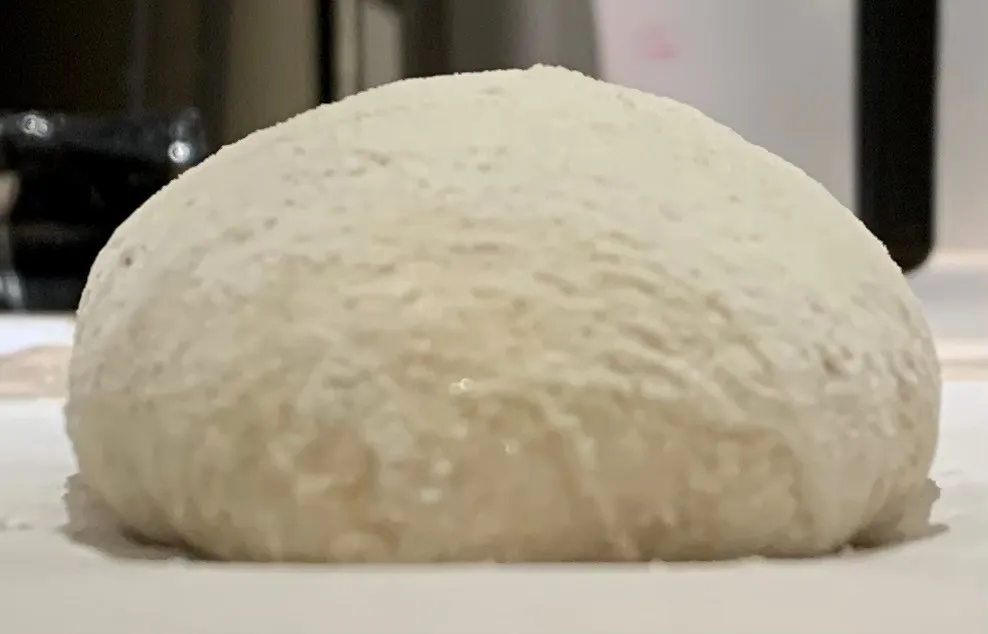
Hello everybody,
Demo: https://youtu.be/k8Vlbvq04x4
I noticed that many methods for developing a high hydration dough involve a lot of work during the mixing and bulk stages. That can be bassinage, 30 minutes of mixing in a mixer, many Rubaud folds and so on. I was wondering if all this is necessary and made some experiments.
First experiment: baking a poolish – Although poolish appears to be very fragile, once you deflate it you discover that it has a very nice gluten development. It is still hard to work with, so I put it in the fridge for half a day. Afterward, the poolish was highly developed and stretching a large window passed. This is still a very wet dough, so the challenge was how to stabilize the shape. This was very easily solved by pre-shaping using lamination. Then, a final shaping, one hour proofing and baking. There was a nice oven spring, and a saltless bread.
Second experiment: baking poolish + salt – the method of making this (almost) free standing bread is documented in the video. The dough kept its shape, the oven spring was very nice and the bread was very airy. Note that the result was not “big holes open crumb”. This is very typical with my oven and I assume someone else will be able to achieve that with this method.
The test dough: 240 gram A/P flour, 60 gram Whole wheat flour, 315 gram water, 6 gram salt, 1/16 Tsp instant yeast
The method
1. Mix all ingredients together the same way you mix poolish: make sure all the flour is wet and do not attempt to develop gluten. Cover and leave at room temperature for 12 hours.
2. Deflate the dough with a wet spatula (see video). Cover and put in the fridge for 6 to 24 hours.
3. Pre-shape using lamination (see video)
4. Optionally – pre-shape once more if needed
5. Final shape, or cut as ciabatta
6. Bake
Questions
1. Can anyone recommend a way to score such a fragile dough to get a better oven spring?
2. Any comment or improvement on this technique will be much appreciated!
it instead of using a lame.
Cool experiments!
Yippee
That's a good idea, thanks. I will try it on the next bake.
If I'm worried my dough has over proofed I'll often place it in the freezer 30 mins or so before baking. This stiffens it up and makes scoring it easier and it deflates less when scored. I still wouldn't score too deeply though.
Dan, I thoroughly enjoyed watching the way you handled the dough. Very innovative!
Thank you for your kindness…